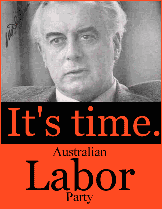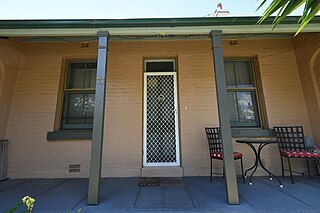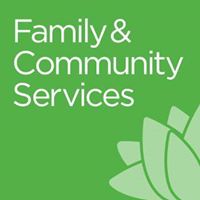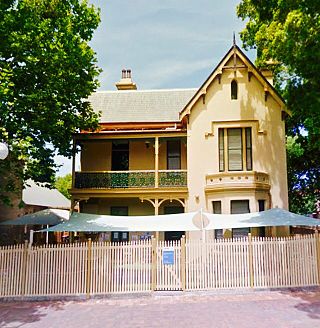Related Research Articles

Western Sydney University, formerly the University of Western Sydney, is an Australian multi-campus university in the Greater Western region of Sydney, Australia. The university in its current form was founded in 1989 as a federated network university with an amalgamation between the Nepean College of Advanced Education and the Hawkesbury Agricultural College. The Macarthur Institute of Higher Education was incorporated in the university in 1989. In 2001, the University of Western Sydney was restructured as a single multi-campus university rather than as a federation. In 2015, the university underwent a rebranding which resulted in a change in name from the University of Western Sydney to Western Sydney University. It is a provider of undergraduate, postgraduate, and higher research degrees with campuses in Bankstown, Blacktown, Campbelltown, Hawkesbury, Liverpool, Parramatta, and Penrith.

Tanya Joan Plibersek is an Australian politician who served as Deputy Leader of the Labor Party and Deputy Leader of the Opposition from 2013 to 2019. She has served as the Member of Parliament (MP) for Sydney since 1998. A member of the Labor Party, Plibersek served as a Cabinet Minister in the Rudd, Gillard and Albanese governments. She is currently the Minister for the Environment and Water in the Albanese ministry since 2022, having previously served as the Shadow Minister for Education and Shadow Minister for Women between 2019 and 2022.
Mission Australia is a national Christian charity that provides a range of community services throughout Australia. It has its roots in the Brisbane Town and Country Mission (1859) and Sydney City Mission (1862), but was only officially established in 1996, bringing together a number of city missions across the country. The organisation specialises in the areas of homelessness and housing, families and children, early learning, youth, employment and skills, substance abuse, disability, mental health, and strengthening communities. Sharon Callister has been CEO since March 2022.

A women's shelter, also known as a women's refuge and battered women's shelter, is a place of temporary protection and support for women escaping domestic violence and intimate partner violence of all forms. The term is also frequently used to describe a location for the same purpose that is open to people of all genders at risk.

It's Time was a successful political campaign run by the Australian Labor Party (ALP) under Gough Whitlam at the 1972 federal election in Australia. Campaigning on the perceived need for change after 23 years of conservative government, Labor put forward a raft of major policy proposals, accompanied by a television advertising campaign of prominent celebrities singing a jingle entitled It's Time. It was ultimately successful, as Labor picked up eight seats and won a majority. This was the first time Labor had been in government since it lost the 1949 federal election to the Liberal Party.

Homelessness in Australia is a social issue concerning the number of people in Australia that are considered to be homeless. There are no internationally agreed upon definitions of homelessness, making it difficult to compare levels of homelessness across countries. A majority of people experiencing homelessness long-term in Australia are found in the large cities of Sydney, Melbourne, Brisbane and Perth. It is estimated that on any given night approximately 116,000 people will be homeless and many more are living in insecure housing, "one step away from being homeless". A person who does not obtain any shelter is often described as sleeping 'rough'.

The Australian Hotels Association (AHA) is a federation of not-for-profit employer associations in the hotel and hospitality industry, registered under the Fair Work Act and respective State Laws. The AHA's role is to further and protect the interests of its members throughout Australia which are employers and can be owners, operators or lessees of hotels, bars and other hospitality businesses. The areas of focus include accommodation, food, beverages, entertainment, wagering and gaming; the maintenance of the law; promotion of business activity, education, training and advocating the economic and social benefits of the industry.

The Elsie Refuge for women and children was a women's refuge set up in Glebe, Sydney in 1974. The project was the beginning of the NSW Women's Refuge Movement that responded to the needs of women and children escaping domestic violence by providing access to specialist accommodation and support services operating within a feminist framework.
In Australia, domestic violence (DV) is defined by the Family Law Act 1975. Each state and territory also has its own legislation, some of which broadens the scope of that definition, and terminology varies. It has been identified as a major health and welfare issue. Family violence occurs across all ages and demographic groups, but mostly affects women and children, and at particular risk are three groups: Indigenous, young and pregnant women.
The Epilepsy Foundation is a large Australian charity, headquartered in Surrey Hills, Victoria, which provides evidence-based programs to support to people living with epilepsy, and all those who care for them. Epilepsy Foundation programs are delivered nationally through the Epilepsy Australia network of service delivery partners. The Epilepsy Foundation delivers services directly in New South Wales and Victoria. The Epilepsy Foundation aims to stop avoidable deaths, ensure children get a good education, help people get and keep their jobs and help people feel safe and connected. The Epilepsy Foundation works to ensure that "no one with epilepsy goes it alone".

The New South Wales Department of Family and Community Services (FACS) is a former department of the Government of New South Wales and was previously responsible for the delivery of services to some of the most disadvantaged individuals, families and communities in the state of New South Wales, Australia until July 2019.
Women's Justice Network (WJN), formerly known as the Women in Prison Advocacy Network (WIPAN), is an incorporated not-for-profit charity based in Sydney, Australia, focused on advocacy around issues affecting female prisoners.

Caretakers Cottage is an Australian non-profit, non-governmental organisation based in Sydney assisting children and young adults facing homelessness. Caretakers Cottage is funded by the New South Wales Department of Family and Community Services to provide services for young people across Sydney's South-Eastern district. Services include short-term, emergency accommodation, semi-independent living options, case support and early intervention for young people at risk of homelessness.
Coast Shelter is a non-profit organisation supporting homeless young people, adults and women and children experiencing domestic & family violence in the Central Coast region of New South Wales, Australia. Coast Shelter is the largest regional Specialist Homelessness Service in NSW and provides a range of accommodation and other services to those experiencing hardship in the local community.
Detour House is a non-profit organisation servicing homeless and other at-risk girls and women, based in Sydney, Australia. Detour House also incorporates The Girls Refuge, a crisis accommodation service for homeless girls.
Joyce Stevens AM (1928–2014) was an Australian socialist-feminist activist, communist, and historian, one of the founders of the women's liberation movement in Sydney, prominent in the wave of feminism that began in the late 1960s in Australia.
The NSW Women's Refuge Movement began in 1974 with the establishment of Elsie Refuge in Glebe, NSW. Other refuges were established throughout the 1970s, operating within a feminist framework and responding to the needs of women and children escaping domestic violence. At first, the refuges were developed through volunteer effort and without government funding. Gradually the government took over funding of the refuges, with the states funding the buildings and the federal government funding the running costs. The NSW Women's Refuge Movement continued to provide services to women with diverse needs and to raise awareness about domestic violence.
Marrickville Women's Refuge, also known as Jean's Place, was a women's support facility formally opened in April 1976. It was one of the earliest refuges to open in New South Wales as part of the original NSW Women's Refuge Movement in response to the need for specialised feminist housing and support services for women and children fleeing domestic violence, following that of Elsie Refuge and Bonnie Women's Refuge. Today, the refuge operates as a company limited by guarantee with the name Marrickville Women's Refuge Ltd, and is registered as a public benevolent institution. The refuge, whilst still known as Marrickville Women's Refuge, has been trading as the Aboriginal Women and Children's Crisis Service since 1 November 2014, after the implementation of the 'Going Home Staying Home' tendering program in New South Wales.
The Women's Domestic Violence Court Assistance Scheme, commonly referred to by its initialism WDVCAS, comprises a network of organisations in New South Wales which information, advocacy and safety planning for women and their children who are escaping from or in danger of domestic violence. It is a key frontline support service. The Women's Domestic Violence Court Advocacy Service is the New South Wales Government organisation that provides funding and support for the WDVCASes, and ensures that they are operating according to their mandate. It was established in South Australia in July 2015.
Jenny's Place was established in 1977 and was the first women's refuge in New South Wales' Newcastle region. The establishment of Jenny's Place was integral in the response to the recognised need for feminist housing and crisis services for women and children escaping domestic and family violence, part of the original New South Wales Refuge Movement. It was one of the earliest refuges to open following that of Elsie Refuge, Bonnie Women's Refuge and Marrickville Women's Refuge. Today, the refuge continues to operate as Jenny's Place Inc., and is a registered public benevolent charity.
References
- ↑ "- Reaching for Health: The Australian women's health movement and public policy - ANU". press-files.anu.edu.au. Retrieved 10 April 2020.
- ↑ Gilmour, Tony (2018). Champions of Change (PDF). Shelter NSW. Archived from the original (PDF) on 11 March 2020. Retrieved 22 April 2020.
- ↑ Shelter NSW, Newsletter (September 2015). "The Story of Bonnie's first 40 years" (PDF). Around the House. 102: 22–25.
- ↑ acnc_charity_api_user (29 January 2020). "Bonnie Support Services Ltd". www.acnc.gov.au. Retrieved 15 April 2020.
{{cite web}}:|last=has generic name (help) - ↑ "ParlInfo - PRIVATE MEMBERS' BUSINESS : Domestic Violence". parlinfo.aph.gov.au. Retrieved 15 April 2020.
- ↑ "Sydney Women's Liberation Newsletter". February 1975.
- ↑ "Bonnie Support Services » Our Long History" . Retrieved 15 April 2020.
- ↑ "Sydney Women's Liberation Newsletter". February 1975.
- ↑ Parliamentary Paper no. 44 of 1977: Hospital and Health Services Commission Third Annual Report (Report). The Parliament of the Commonwealth of Australia. 22 February 1977. Retrieved 15 April 2020– via Trove.
- ↑ "Whitlam Institute Women's Rights". Whitlam Institute. Retrieved 22 April 2020.
- ↑ Powell, Diane (June 1976). "Bonnie". Sydney Women's Liberation Newsletter.
- ↑ Ralph Hunt; K J Stewart (27 April 1978). "New South Wales Community Health Projects" (PDF) (Press release). Parliament of Australia. Retrieved 15 April 2020.
- ↑ Laing, Lesley (2000). "Progress, trends and challenges in Australian responses to domestic violence" (PDF). Archived (PDF) from the original on 14 September 2009. Retrieved 15 April 2020.
- ↑ "ParlInfo - Funding under the supported accommodation assistance program for services in NSW in 1985-1986". parlinfo.aph.gov.au. Retrieved 22 April 2020.
- ↑ "Bonnie Support Services » Our Long History" . Retrieved 15 April 2020.
- ↑ "Bonnie Support Services » Support Services" . Retrieved 22 April 2020.
- ↑ You are not alone. Bonnie Support Services. (1st ed.). Canley Heights, N.S.W.: Bonnie Support Services. 2007. ISBN 978-0-9803851-0-6. OCLC 225396116.
{{cite book}}: CS1 maint: others (link) - ↑ Case manager's guide to small children's and young people's booklets. Bonnie Women's Refuge., Victims of Violent Crime Grant Program. Canley Heights, N.S.W.: Bonnie Support Services. 2012. ISBN 978-0-9803851-3-7. OCLC 805469642.
{{cite book}}: CS1 maint: others (link) - ↑ "Bonnie Support Services » A cup of tea… a life story" . Retrieved 15 April 2020.
- ↑ Sobski, Jozefa (September 2014). "Women's Refugesunder Going Home Staying Home" (PDF). WEL NSW. Retrieved 15 April 2020.